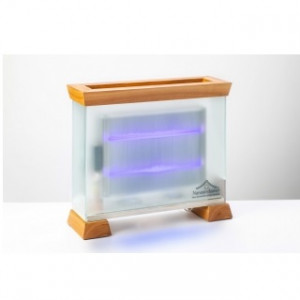| Retap spol. s ro |

| No Title | 0.21 MB |
| Registration Date | 18 May 2021 |
| Revision Date | 18 May 2021 |
| Share |
Environment Air Remediation
Air PurifierTitanium dioxide
TiO2 Nanoparticle /Nanopowder CAS Number : 13463-67-7• Disposal - decomposition of harmful substances confirmed by repeated measurements in various laboratories, the nanochiller demonstrably eliminates: • bacteria • viruses • fungi • microscopic dust so-called Nanosizes • formaldehyde • toluene • phthalates • Very quiet operation - 10 dB (in silent mode) • Minimal maintenance requirements - filters do not need to be changed • Multiple types of purifiers made of natural materials (wood, glass, canvas, ceramics) • Huge surface of the photoactive nanofilter on which the decomposition of harmful substances occurs • Easy operation and service
here is a photoactive filter in nanocleaners that requires no maintenance or cleaning. Unlike other cleaners, the nanopist is not a "dust and dirt trap", in which it is necessary to wash, clean or change the collected dust and dirt from the filters. In nanopurity plants, chemical harmful substances decompose and bacteria and viruses in the interior are eliminated.
The nanoaircleaners are made of natural materials such as solid wood, fusing art glass, mirror glass, canvas without defective binders and ceramic tiles. Due to the absence of plastic parts that emit chemicals, nanopurizers are able to dispose of substances in a room with greater efficiency. The photocatalytic filter is the subject of patent protection in the Czech Republic and in Europe.
Filters in nanopurity plants are special metal lamellas on which a photoactive substance based on titanium dioxide is applied. The system of photocatalysis based on UVA radiation acting on TiO², Zn, Ag has been known in the world for more than 30 years with various uses and the patented system of our company RETAP sro is currently unique and focused on a healthy environment in living rooms.This phenomenon uses the action of UVA radiation on a special layer of titanium oxide, which is firmly attached to the aluminum lamellas. By supplying air to the lamella system with irradiation with UVA light, photocatalysis takes place, during which the substances are solid - i. viruses, bacteria, fungi and gaseous substances - formaldehyde, toluene, nitrogen oxides decomposed into carbon dioxide CO² and water without the need for any other filters.